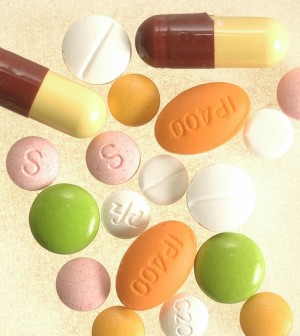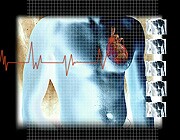- Recognizing the Signs of Hypothyroidism
- 10 Strategies to Overcome Insomnia
- Could Artificial Sweeteners Be Aging the Brain Faster?
- Techniques for Soothing Your Nervous System
- Does the Water in Your House Smell Funny? Here’s Why
- Can a Daily Dose of Apple Cider Vinegar Actually Aid Weight Loss?
- 6 Health Beverages That Can Actually Spike Your Blood Sugar
- Treatment Options for Social Anxiety Disorder
- Understanding the Connection Between Anxiety and Depression
- How Daily Prunes Can Influence Cholesterol and Inflammation
FDA Warns of Heart Risks From Stress-Test Drugs


Doctors are being warned that two drugs used in cardiac nuclear stress tests can cause heart attacks and death in patients, the U.S. Food and Drug Administration says.
These rare but serious events have led the agency to approve changes to the labels of Lexiscan (regadenoson) and Adenoscan (adenosine) and to update recommendations for their use.
Cardiac nuclear stress tests can diagnose heart problems that other stress tests or an examination at rest might not detect. The drugs are approved for use during cardiac nuclear stress tests in patients who cannot exercise. The drugs dilate the arteries of the heart and increase blood flow to help reveal blockages or obstructions in the heart’s arteries, the FDA explained.
Lexiscan and Adenoscan cause blood to flow to the healthier, unobstructed arteries, which can reduce blood flow in an obstructed artery. But in some cases, this reduced blood flow can lead to a heart attack, the FDA said.
The “Warnings & Precautions” section of the drugs’ labels previously included information about the possible risk of heart attack and death with use of these drugs.
“However, recent reports of serious adverse events in the FDA Adverse Event Reporting System database and the medical literature prompted us to approve changes to the drug labels to include updated recommendations for use,” the FDA said in a news release.
The new recommendations advise doctors to screen all nuclear stress-test candidates for their suitability to receive Lexiscan or Adenoscan. Doctors should not use “these drugs in patients with signs or symptoms of unstable angina or cardiovascular instability, as these patients may be at greater risk for serious cardiovascular adverse reactions,” according to the FDA.
Also, cardiac resuscitation equipment and trained staff should be available before patients are given Lexiscan or Adenoscan, the agency said.
Currently, it’s not known if there is a difference in risk of heart attack or death between Lexiscan and Adenoscan, the FDA said.
More information
The U.S. National Library of Medicine has more about cardiac nuclear stress test.
Source: HealthDay
Copyright © 2026 HealthDay. All rights reserved.










